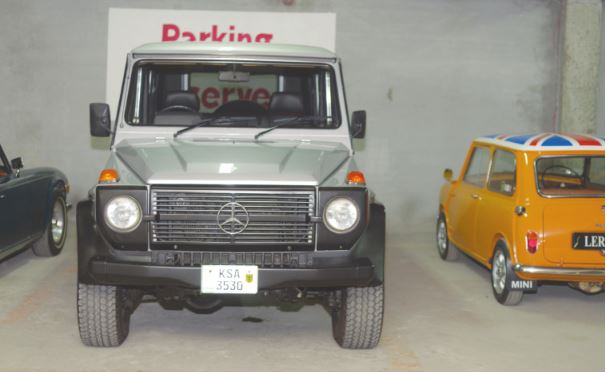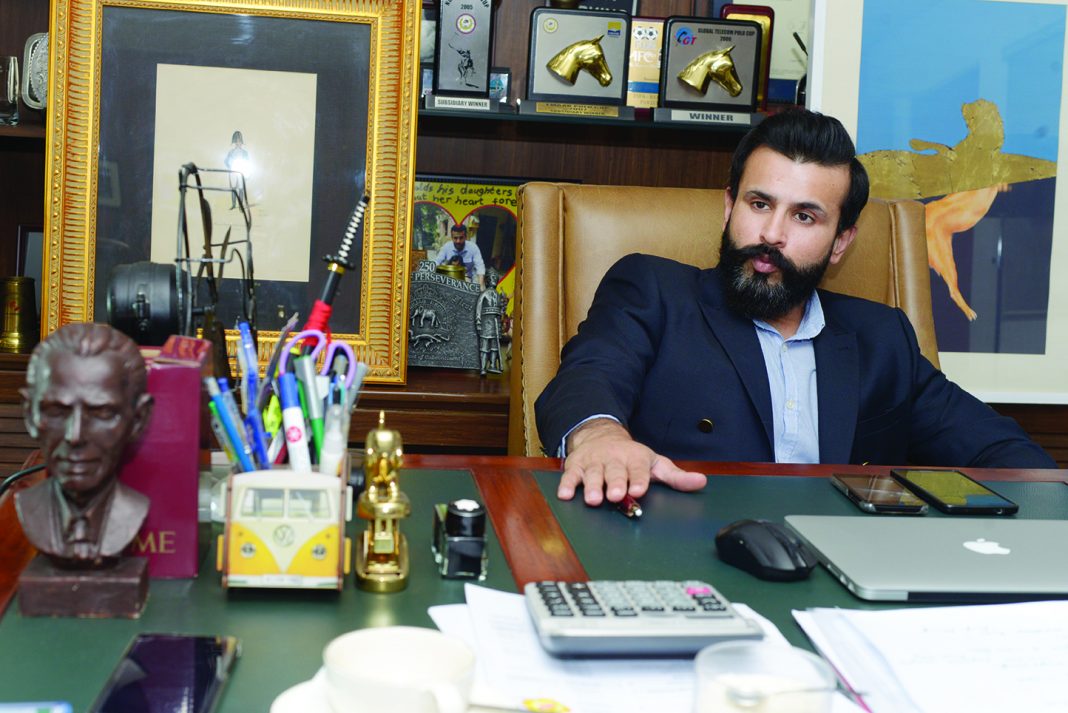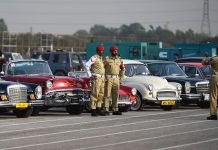Interview: Junaid Ahmed, CEO/Executive Director, Detailing Crew
Ensconced in the comfort of his well-appointed office surrounded by his favourite memorabilia, Junaid Ahmed talks about his passion that he has turned into a lucrative business.
Car detailing is something new in this neck of the woods, so Profit sat with Junaid Ahmed, the CEO and Executive Director of Detailing Crew, to get to know its nuances and also how and why he took the plunge.
Profit: Car detailing… it’s not something common around these parts, is it?
Junaid Ahmed: It’s not common at all. For me, the business stems from a very deep-rooted affection that I’ve always had for things mechanical.
Q: Like vintage cars?
JA: Vintage cars, and also motorcycles – the ones that are rare and unique. Personal interest aside, a very important bit is restoring history… our history. You’ll see many items scattered around my office that are restored, brought back to life to speak. This little table fan is from the 1930s, the telephone set used to be at the East Pakistan governor’s house. I have restored these, and use them.
Q: How do you procure such stuff?
JA: I’ve been at it for 20-odd years… I’ve always had the passion for it, though it’s a very expensive passion and needs to be backed by money. In my early days, I used to go for small but historically significant things. There are a lot of junkyards around here. And then with time you obviously make some contacts. I’m very fond of vintage guns, and I’ve [in my collection] pieces from Anglo-Afghan war, the French war etc. Things come by when you spend time in the field and make contacts. But paramount amid all this is vintage cars [presently he owns 16].
My car detailing crew at the moment is working on three cars with proper history: a 1948 Wolseley which belonged to Syed Wajid Ali, a 1971 bulletproof Mercedes of a senior US diplomat who got assassinated in Karachi in the early 1980s as he stepped out of it at what was then Intercontinental Hotel, and a 1948 model A-4 – one of the oldest cars in Pakistan right now.

So, from this passion emanated this realisation that I can make it commercial.
In 2010, there was no one doing it professionally. I had a vacant lot at Ferozepur Road, so I thought why not start something of our own and see how it does commercially. Now it is a most viable business, with outlets in three cities – along with principal office at Lahore, at Islamabad and Faisalabad, with Sialkot and Multan on our radar.
From detailing we’ve moved to protective coatings – a Nano-coating on top of car paint, saving it from scratches and degradation that happens naturally because of its interaction with the environment. We represent ceramic pro – a huge company dealing specifically in protective coatings – in the North of Pakistan.
Personally, I believe that even the new cars must be in mint condition. They have to look shiny, blingy, well-kept – inside and outside. Initially, I started doing it myself: polishing, compounding and everything.
Q: You must have tremendous powers of persuasion to land Wajid Ali’s car because his polo-playing son Shahid Ali himself is a vintage cars aficionado…
JA: Yes, I landed it through Syed Shehryar Ali, as he wanted his grandfather’s car to be restored. This actually is the third car after a 1938 MG [the same model that Prince Phillip drove] and a Mustang that I am working on for Shehryar. Car restoration, I only do for passion, without charge to friends. For me, the satisfaction is in seeing a vintage piece restored, and not the money. Detailing is different; that is my commercial concern.
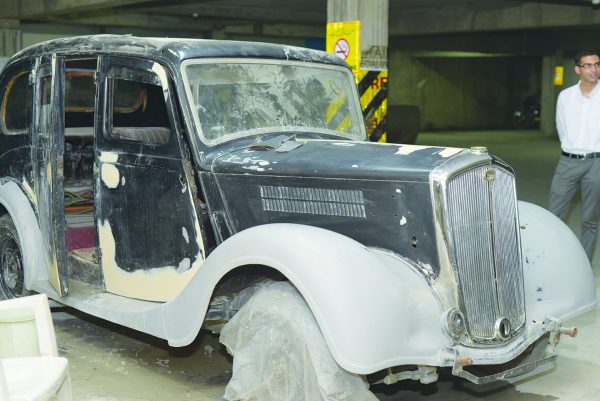
Q: How does car detailing work?
JA: It’s very complicated actually. We have always lived with the concept of service stations… Getting the car done in 15 minutes or one-hour max. Car detailing [in contrast] is a very complex process. It can involve from four to 40 steps. And that really depends on the kind of work the client wants, what kind of work is required on the car, how well he wants it to come out. It can be an old car, or a new one. It can be his grandfather’s car and he may want it detailed to the point where it will stay functional for another 5-10 years, with its paint and the interior protected. So, it’s very multifaceted, not a [rudimentary] concept like what you see at a service station. If I were to explain car detailing in short, it is basically the restoration of the paint, interior, exterior in multiple steps and it usually takes about a day or two. We’ve done cars that have taken us five days to finish. So, detailing is more of an art… of cleaning and restoration and the paint and interior and the plastic and the rubber and the chrome of the car. It’s a very multifaceted and multidimensional process.

Q: And what kind of financial costs does it involve?
JA: Obviously the human resource cost is the most expensive. We need very trained people. My people are trained from Dubai. My people are trained locally with tons of experience; because we usually do this … we don’t do hand-work as such. This is machine work. So, you have to be very trained in machine. You have to know what speed you run the machine on or the pressure do you run the dual applicator on. Then you also have to have knowledge about the paint depth, the paint condition, the integrity of the paint, what kind of scratch are we looking for that needs to be taken out? That’s the most expensive bit of it. Otherwise, the products that we use …. Our most expensive line of products are the ceramic pro products; they’re very expensive. The base starts from around $120. This is one product that I am talking about that goes in one car. So, our usual cost for one car starts from $350 and that’s where we start from and go on above. So, basically, primarily, the main cost is of the human resource.
Q::Is it getting any traction in the market?
JA: Yes, lots of it. We work at capacity every day. That’s why we had to increase our footprint into other cities. If it were not going to get any traction, it won’t make commercial sense, right? In fact, now we are also in the process of expanding, like I said before, to Sialkot and Multan.
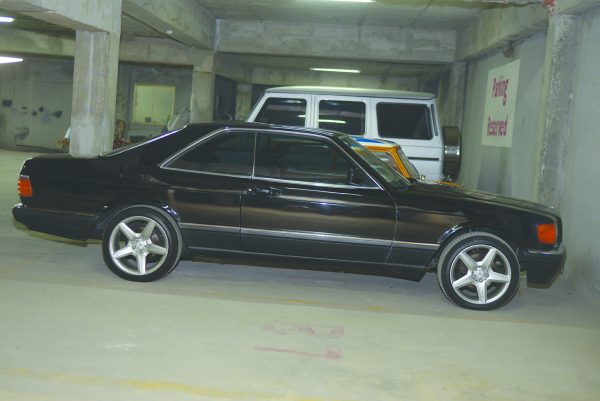
We started our mobile detailing arm as well, which is doing really well. Basically, we’ve got couple of cars equipped with machines, products and everything. They go to people’s houses. That’s where they finish the work. So, if people don’t want it spread over two days and instead need to get it done in 3-4 hours, then we send a team to their place. This was a very small startup but making good revenue annually, so much so that I’m seriously thinking of putting in more investment.
Q: So, your passion is your business now…
JA: Yes, it has worked really well [financially]. And it has given me a lot of exposure to a lot of different cars. Sometimes the cars that come here are insane, you know. We’ve done Rolls Royces, Ferraris and Lamborghinis. Name the car and we’ve protective coated it. Sometimes even I go and work on them. I don’t need to but I go, out of sheer love and to understand the paint quality, or to understand what kind of engineering goes into this vehicle. Even the paints, we usually use that spraying technique in Pakistan. There’s no science, there’s no logic. But when you look at a German or Italian car, these Rs15 million plus cars, one can appreciate the engineering that goes into every molecule of the paint… It’s visible to the naked eye. It is vastly different… and that stimulates my interest and passion.

Q: How cumbersome is it?
JA: It’s just work. As long as you love doing what you’re doing, it’s not cumbersome at all. We have been at it for 7 years plus, and we know this job like the back of our hands.
Q: How difficult is it to acquire the missing parts…
JA: Quite difficult… but with the advancement in communication, in particular, internet, life is far easier than it used to be 10 years ago. Parts you can source online. Obviously bringing in the parts is always a pain, because there’s no set pattern, no certain procedure at customs. At first it was difficult because we did not have internet, we had to check with everyone and we didn’t know what kind of pictures were there of the parts. Now everything’s available on the internet so it’s far easier. Not less expensive but far easier.
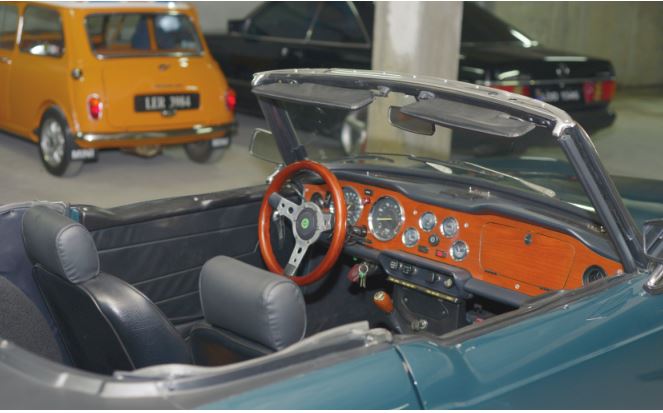
There are some cars with parts that are ridiculously expensive like the couple of Mercs that I own are very expensive to restore. I mean I have to spend about $1,000 just to get bits of the windows. Maybe $300 for the rubbers.
Q: What has been your growth trajectory from 2010 up to now?
JA: Initially it took us 3-4 years just to make the niche… to make our clientele, to make people understand what professional detailing could do for their car. Our progress remained slow, even stagnant, for 2-3 years, but we learned a lot. It has to be very clear that I had no intention of making money out of this business initially. I said to my people, don’t worry about the revenues, make your name. Make people aware of the fact that what professional detailing is I mean it’s been in America since 1960s.
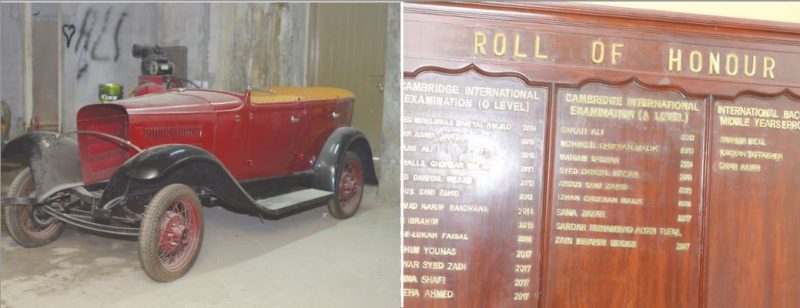
Pakistan only got aware of it after 2005. Before that, it was just the service station. What they do to a new car at the service station is beyond horrendous. They put the compound with their hand, they rub the car… Compounding is basically taking paint off the car. People don’t know that. They think it’s clearing scratches. How do you clear a scratch? You take off a layer of paint and the car has no scratches and that’s what happens. So, for the first few years we stuck to creating a brand. Making a name in terms of quality, in terms of consumer commitment, in terms of after care. And after that we started acquiring the protective coating business bit. That was a huge leap in our growth. We got into ceramic pro. A lot of people were very wary of handing us their new Rs20 to Rs30 million cars. But we were on Facebook and Instagram. We invested in marketing, we invested in customer enrichment; tons of knowledge that we gave them regarding how important our business is for their cars.
Q: In car detailing, what sets DC apart?
JA: In business, there are two types of people. One, who’s in it for the money and there’s one who’s in it for the name. I am in it for the long haul. I don’t want this business to die down. For the people who came after me, I am the pioneer. In at least Punjab. Before us, no one was doing professional detailing in Punjab. So, I was the pioneer here and ones that came after me, there were very good ones also. I have friends of mine who opened up detailing centers. But for some reason or the other, it always came down to how much money we make. I didn’t look at that. Well, you can say I was blessed because I didn’t have to because my livelihood didn’t depend on detailing. I wanted detailing to be a household thing. Whatever we earned, we invested back into it. Major chunk of what we got, we invested in marketing and our facility. You need to keep adding quality. This is what sets us apart.
